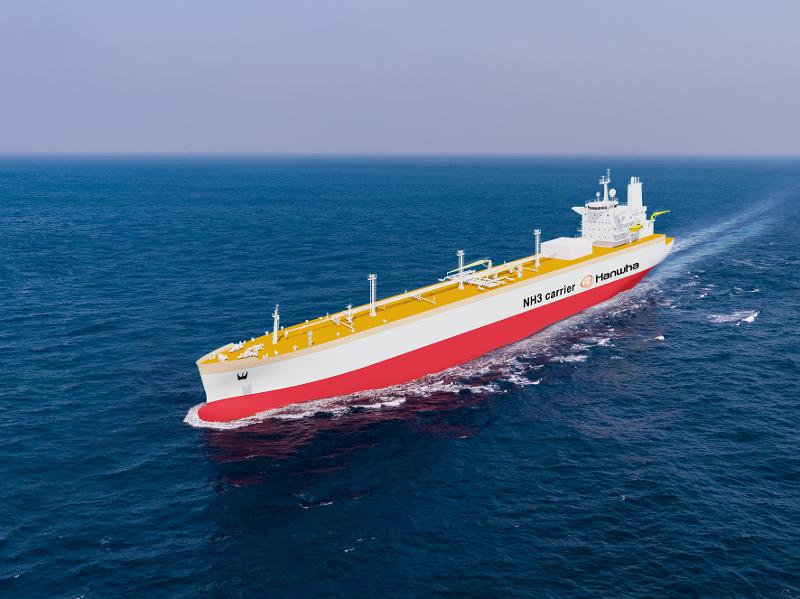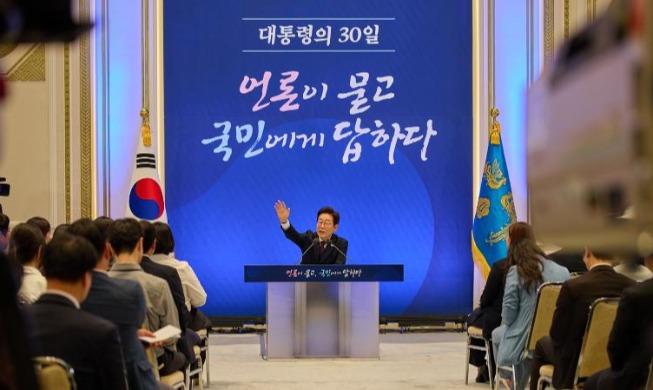
The Ministry of Oceans and Fisheries on July 2 announced at a Cabinet meeting its plans to set up the world's first global green shipping corridor. Shown is a vessel powered by eco-friendly ammonia developed by Hanwha Ocean. (Hanwha Ocean)
By Lee Dasom
The Ministry of Oceans and Fisheries will set up the world's first green shipping corridor across the Pacific Ocean for carbon-free vessels.
The ministry on July 2 announced this at a Cabinet meeting.
Slated to start running from 2027, the trans-Pacific corridor will start from the ports of Busan and Ulsan and end at the U.S. ports of Tacoma and Seattle, Washington.
Slated to start running from 2027, the trans-Pacific corridor will start from the ports of Busan and Ulsan and end at the U.S. ports of Tacoma and Seattle, Washington.
At the 2022 Conference of the Parties to the United Nations Framework Convention on Climate Change, Korea announced its intent to cooperate in forming the corridor.
The relevant roadmap will be completed after a study is done on the feasibility of the corridor's operation in three years. Research and development and private-public sector verification of the route will start next year.
The ministry said a single container using non-carbon fuel going back and from the ports of Busan and Seattle over a year can reduce greenhouse gas emissions equivalent to annual exhaust from about 32,000 motor vehicles.
The plan is also to set up such routes with major shipping countries such as Australia, Singapore and Denmark.
The ministry will provide training and consulting for setting up the corridor for developing economies and expand technical support to countries in Asia and Central and South America.
A green shipping corridor is a route for vessels with no carbon emissions that use eco-friendly fuels such as green methanol or green ammonia or eco-friendly technology. As the International Maritime Organization has strengthened its carbon regulations, the route is attracting attention as a key policy tool to lead the eco-friendly shipping and shipbuilding industries.
Competition to lead the decarbonization of shipping and ports has intensified with projects to establish 44 such lanes announced worldwide, focused on major ports such as Rotterdam, Shanghai and Singapore.
Minister of Oceans and Fisheries Kang Do Hyung said, "Along with taking the lead in achieving carbon neutrality in international shipping by 2050, we will tighten global green shipping corridors to create new growth engines for our nation's shipping and shipbuilding industries."
dlektha0319@korea.kr
